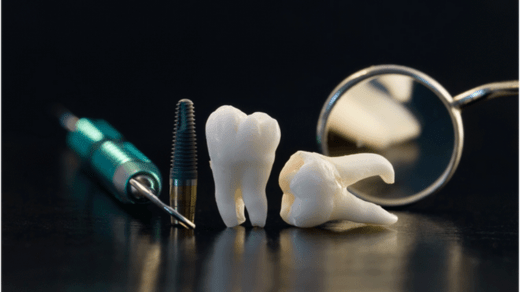Understanding Dental Implants: A Modern Solution for Tooth Replacement

Dental implants have revolutionized the field of dentistry, providing a reliable and durable solution for tooth replacement. This modern technique not only restores the aesthetic appeal of a patient’s smile but also ensures functional efficiency comparable to natural teeth. Understanding the intricacies and benefits of dental implants can help individuals make informed decisions about their oral health.
Dental Implant Tooth Replacement
Dental Implant Tooth Replacement involves surgically placing a titanium post into the jawbone, which acts as an artificial tooth root. This post provides a stable foundation for a prosthetic tooth, ensuring it remains securely in place. The process typically requires multiple steps:
- Initial Consultation and Planning: The first step is a comprehensive dental examination, including X-rays and 3D imaging. This helps the dentist assess the condition of the jawbone and develop a tailored treatment plan.
- Implant Placement: During the surgical procedure, the titanium post is inserted into the jawbone. This requires precision to avoid damage to surrounding tissues and ensure optimal placement.
- Osseointegration: Over the next few months, the implant integrates with the jawbone in a process called osseointegration. This creates a strong bond, mimicking the natural root structure.
- Abutment Placement: Once osseointegration is complete, an abutment is attached to the implant post. This serves as a connector between the implant and the prosthetic tooth.
- Prosthetic Tooth Attachment: Finally, a custom-made prosthetic tooth, designed to match the patient’s natural teeth in color and shape, is attached to the abutment.
Benefits of Dental Implant Tooth Replacement
Dental implants offer several advantages over traditional tooth replacement methods, such as dentures and bridges. These benefits include:
- Longevity: With proper care, dental implants can last a lifetime, making them a cost-effective long-term solution.
- Stability and Comfort: Unlike dentures, which can slip or cause discomfort, implants remain securely in place, providing a natural feel and functionality.
- Preservation of Jawbone Health: Implants stimulate the jawbone, preventing bone loss that typically occurs after tooth extraction.
- Enhanced Aesthetics: Implants are designed to look and feel like natural teeth, improving the overall appearance of the smile.
- Improved Oral Health: Unlike bridges, which may require altering adjacent teeth, implants do not affect neighboring teeth, preserving natural tooth structure.
Tooth Implants: The Procedure and Aftercare
The procedure for tooth implants involves meticulous planning and execution to ensure success. Patients considering this treatment should be aware of the steps involved and the necessary aftercare to maintain optimal results.
The Implant Procedure
The implant procedure is typically performed under local anesthesia, though sedation options are available for those with anxiety or complex cases. The steps include:
- Surgical Preparation: The dentist prepares the site by creating an incision in the gum to expose the jawbone. A small hole is drilled to accommodate the implant post.
- Implant Placement: The titanium post is carefully inserted into the prepared hole. The gum is then sutured over the implant to allow healing.
- Healing Period: The osseointegration process takes several months, during which the patient may be fitted with a temporary crown to maintain aesthetics and function.
- Abutment and Prosthetic Tooth: After osseointegration, the abutment is placed, and impressions are taken to create a custom prosthetic tooth. This final tooth is attached to the abutment, completing the process.
Aftercare and Maintenance
Proper aftercare is crucial for the success and longevity of tooth implants. Patients should adhere to the following guidelines:
- Oral Hygiene: Maintaining excellent oral hygiene is essential. Patients should brush and floss regularly to prevent infection and ensure the health of surrounding tissues.
- Regular Dental Visits: Routine check-ups allow the dentist to monitor the implant and address any issues promptly.
- Healthy Lifestyle Choices: Avoiding smoking and excessive alcohol consumption can enhance the healing process and reduce the risk of complications.
- Diet Considerations: Initially, patients should follow a soft diet to avoid placing undue pressure on the implant site. Gradually, they can reintroduce a wider range of foods as healing progresses.
Conclusion
Dental implants represent a significant advancement in tooth replacement technology, offering a durable, aesthetically pleasing, and functionally effective solution. By understanding the process and benefits of dental implant tooth replacement, patients can make informed decisions about their oral health. With proper care and maintenance, tooth implants can provide a lifetime of confident smiles and improved quality of life.




